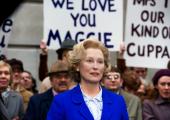This Is England '90, Channel 4

Shane Meadows' happy-go-lucky lot are back - in fine, funny form
It’s been worth the wait.

It’s been worth the wait.

While seven-way debate rages, broadcaster and debuting playwright Jonathan Maitland takes us back 25 years to a radically different political landscape: a time of regents, and of regicide. It’s 1990 – Thatcher the leader claiming divine right to rule, Geoffrey Howe her unexpected assassin. How did the mild-mannered Welshman, whose rhetorical powers Denis Healey compared with those of a dead sheep, become a wolf in sheep’s clothing?

When, before the great miners’ strike of 1984-85, Britain still had a coal industry, the miner was at the centre of a never-ending class war: you saw him either as an honest proletarian, in the vanguard of the struggle for better pay and conditions, or as a uppity worker, whose union held the country to ransom. Since the dismantling of the coal industry, an element of sentiment has entered the equation. Now, we miss the horny-handed sons of toil — and shed discreet tears when we watch Brassed Off.

It’s been a decade since the television drama Sex Traffic brought writer Abi Morgan into the mainstream. It won an impressive collection of awards, and its tale of international prostitution networks, and their brutality, was as harsh and under-the-skin as they come.

"For youth, for change and always for the people" was the slogan with which Rupert Murdoch relaunched The Sun in 1969, having bought it from its previous owners IPC for a mere £800,000. Murdoch, the Aussie iconoclast who kept a bust of Lenin in his rooms at Oxford university in the early Fifties and claimed to be an ardent socialist, decreed that his new tabloid would be free from party political affiliations and would refuse to kow-tow to the British establishment, which he instinctively loathed.

The political legacy of Margaret Thatcher is being sifted and analysed all over the world. But what of the music she left behind? The first and only female Prime Minister had barely a cultural bone in her body, but on her watch a young generation of musicians had something to kick against or, in one or two cases, a set of values to emulate. The music writers of theartsdesk have identified some of the songs which define the age of Thatcher.
Duran Duran: “Rio” (1982)

Mrs Thatcher famously presided over a huge rise in unemployment, but down the years she kept a large sorority of impersonators (and one male one) off the dole. She was lucky with her mimics, who included some of the great actresses of the age, and never luckier than when Meryl Streep (pictured below) inhabited the role of Britain's first female Prime Minister. To her three election victories, Thatcher was able to add - if by proxy - an Academy Award for Best Actress.

There is a moment some way into The Iron Lady when its titular heroine presides over a celebratory domestic soiree. Around the table are arrayed ageing Tory nabobs and their peachy consorts, one of whom at the evening’s end tremulously approaches her hostess, sitting apart in an upright chair. The guest (played by Amanda Root) sinks to one knee and, offering up a gaze that mingles concern and adoration, says, “I hope you appreciate what an inspiration you’ve been.” It’s as if she’s in supplication to Saint Teresa of Avila, not the woman who torpedoed the Belgrano and the NUM.

Bob Geldof only shuts up in the end because a plane he should be on is imminently taking off for India, and he is still in his local South London pub, refusing to let a heavy cold stop him from talking like others drink - with unquenchable relish. He is in passing promoting his new album, How to Compose Popular Songs That Will Sell, a lesson Geldof could have given with conviction during his old band the Boomtown Rats’ pomp between 1977 and 1980, when their first nine singles hit the Top 20, climaxing with consecutive Number Ones “Rat Trap” and “I Don’t Like Mondays”. The way those achievements have been forever dwarfed by his marshalling of global compassion to save countless Ethiopians with Live Aid is something he can live with.

Ten years ago Ben Elton (b 1959) would have needed no introduction. When still very young he became the mouth of a bolshy new generation of alternative comedians, as they were then known. Saturday Live - later Friday Night Live - was consciously modelled on the American template, and seemed very cutting edge. In fact all its alumni soon migrated to the mainstream: Stephen Fry and Hugh Laurie, freshly down from Cambridge, played Jeeves and Wooster. Harry Enfield became the face of BBC One sketch comedy. And what of Elton? His career went centrifugal.